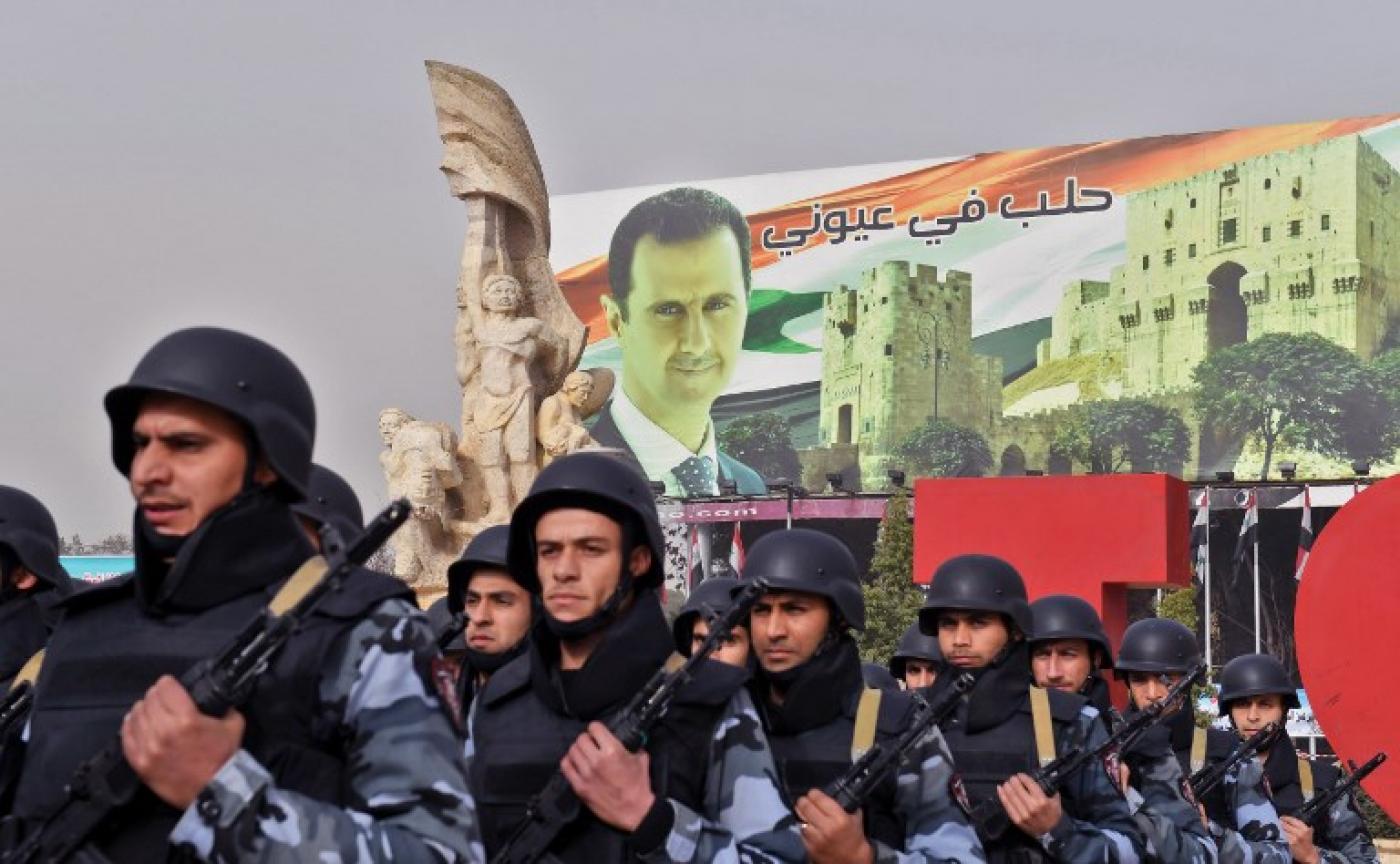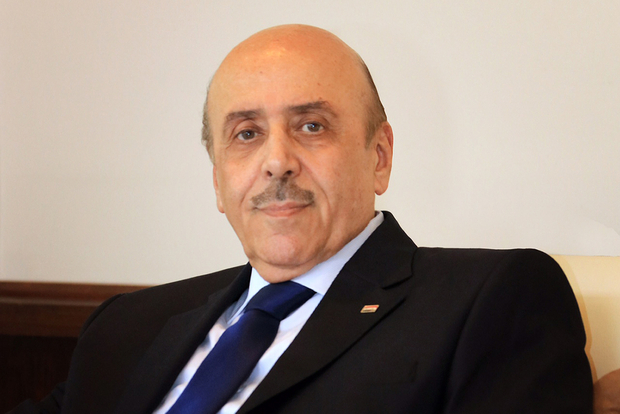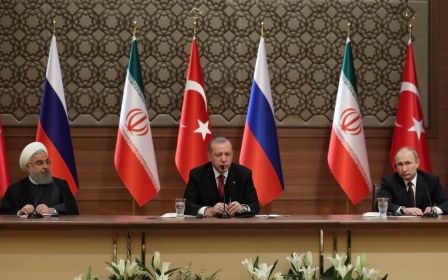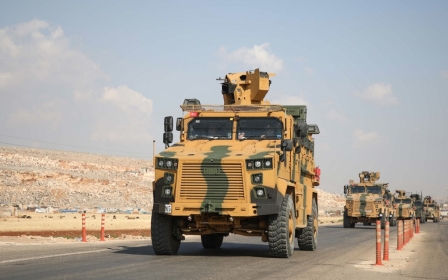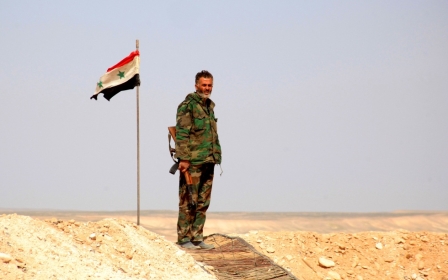Syria war: Why did Assad restructure the military-security apparatus?
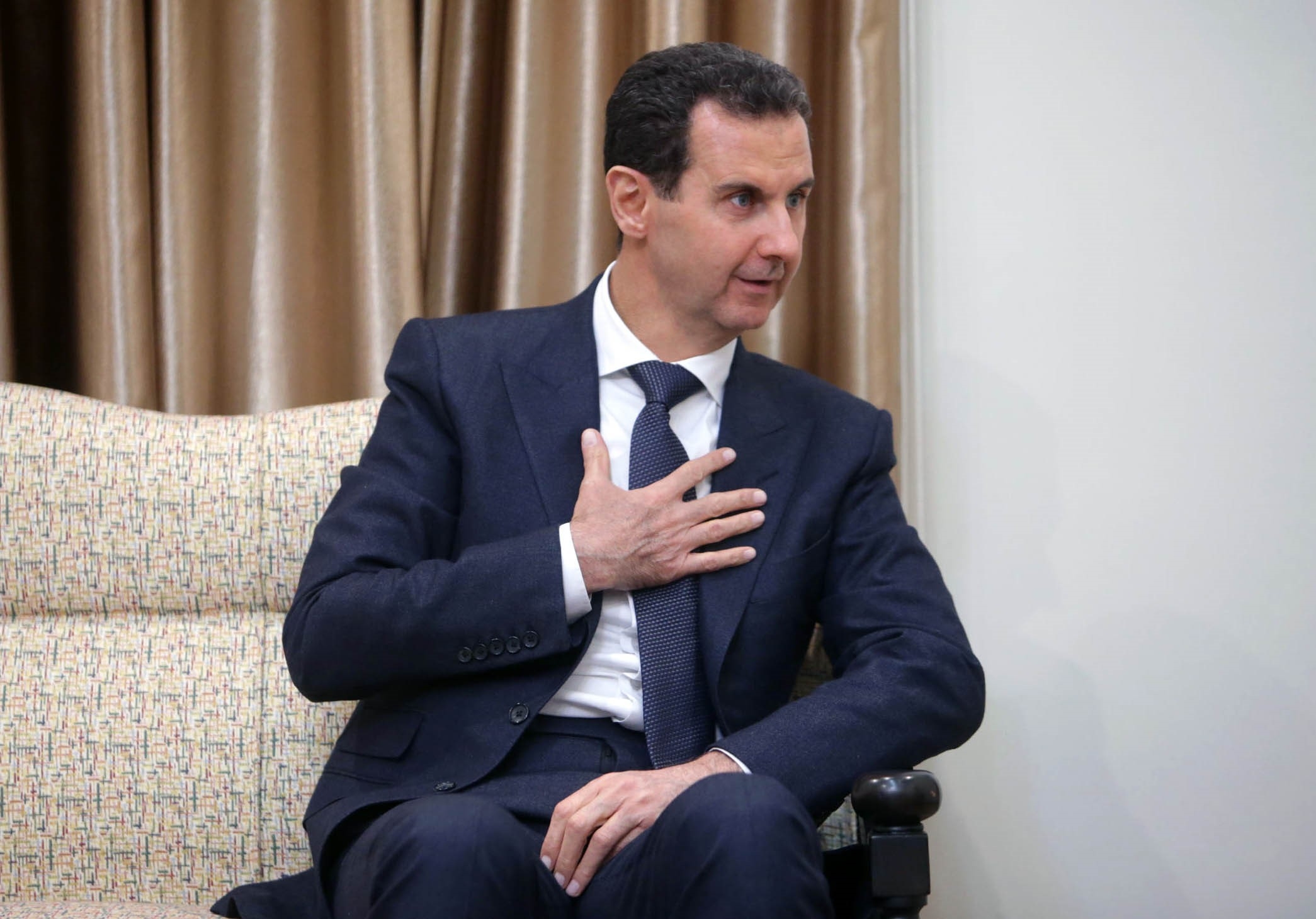
The restructuring of Syria’s security apparatus announced on 8 July constitutes the most extensive change to the military and security institutions by President Bashar al-Assad since the bombing of the National Security headquarters in Damascus almost exactly seven years ago.
Among those killed in the attack on 18 July 2012 were General Hassan Turkmani, the chief of the National Security's "crisis cell" (which dealt with putting down the uprising from 2011); the Minister of Defence Daoud Rajha; General Assef Shawkat, the president’s brother-in-law; and the national security chief, Hicham Ikhtiar.
A significant change
Shortly after the bombing, several appointments were made to key positions - four of these have now been replaced in the latest reshuffle.
General Jamil al-Hassan, who since 2009 has been the head of the powerful Air Force Intelligence services (but his extensive prerogatives actually cover the entire country) has been replaced by his deputy, Ghassan Ismail.
General Mohamed Dib Zeitoun, the national security chief since 2012, has also been replaced by General Houssam Louka, whose former position as director of political security has been given to General Nasser al-Ali.
The most significant change is the promotion of General Ali Mamlouk, chief of the National Security Bureau, who has now become vice-president for security affairs
The most significant change is the promotion of General Ali Mamlouk, chief of the National Security Bureau, who has now become vice-president for security affairs.
The National Security Bureau was created after the 2012 bombing in order to coordinate and supervise the multiple security services against the Arab Spring revolt, which after several months of peaceful protests had turned into an armed rebellion.
Mamlouk was already one of the regime’s most prominent Sunni figures. Following his recent promotion, he is now the most powerful Sunni official in Syria. His former position as the head of the National Security Bureau has been attributed to Mohamed Dib Zeitoun, a Sunni Baathist general close to President Assad.
Another significant change barely noticed by the media was the promotion of Ali Turkmani, the son of the deceased chief of the crisis cell, to the position of presidential security advisor. This discreet physician had recently been sent abroad several times in the past by Assad and General Mamlouk on official missions.
An Iran-Russia rivalry?
News and analysis of the move dominated both Arab and international press. Some media platforms interpreted the changes as being part of a larger rivalry between Russia and Iran over the control of Syria’s military and security agencies and thus part of the framework of a geopolitical competition between countries that are, theoretically, allies.
The Russian newspaper Kommersant pointed to an implicit connection between this institutional reconfiguration and the tripartite security meeting that took place in Israel on 24 June and brought together - for the first time - the national security advisors of Israel, the United States and Russia.
Sources cited by the Russian daily indicated that the “sacking” of General Jamil al-Hassan took place after a meeting in Quneitra (in the Israeli-occupied Golan Heights) last June that was attended by the Syrian commander, members of the Russian military, delegates of the 5th Corps of Syria’s army (allegedly close to Russia), and by Israeli officers.
Though neither Damascus, Moscow nor Tel Aviv officially confirmed that the meeting took place, General al-Hassan, according to the Russian paper, “did not respond to Israel’s demands that the pro-Iranian forces withdraw from the Israeli-Syrian border”.
These reports are corroborated by an article posted on the Lebanese al-Modon web site, a media outlet close to the Syrian opposition.
Other Syrian opposition insiders based in Beirut consider the Russians to be “the biggest beneficiaries” of the changes made by Assad, since it will allow them to consolidate their influence to the detriment of Iran “after having imposed their candidate as the head of the Syrian army”.
A new phase
Interviewed by Middle East Eye, former Lebanese General Elias Hanna explained that the recent changes in Syria mark “a new era characterised by the primacy of security over politics.” He added that the move “gives Russia the upper hand to the detriment of Iran”.
“Syria is entering a new phase that includes the emergence of new figures who are likely to strengthen Russia’s status and weaken Iran’s influence. The one who restructures the Syrian army will have the last word."
However, Hanna placed special emphasis on the promotion of Mamlouk, although it does not necessarily mean he is a “potential successor to Bashar al-Assad” within the context of a political solution. He estimated that “President Assad remains the essential player and the one who grants legitimacy to both Russia and Iran in Syria.”
Amin Hoteit, another Lebanese military analyst and former army general, rejected the attempts to understand Assad’s changes within the framework of a Russia-Iran rivalry.
In an interview with MEE, Hoteit described as ridiculous the information claiming Jamil al-Hassan was sacked because Russia asked for it. “General al-Hassan has been very ill for over a year, he was unable to fulfill his duties,” he said.
Unexpected and exceptional
Indeed, Hassan, the once-powerful Syrian officer who was placed on the European blacklist for his alleged role in the repression of the Syrian uprising, suffers from a health crisis. Last February, reports emerged that he had been transferred to Lebanon for medical treatment.
'General al-Hassan has been very ill for over a year, he was unable to fulfill his duties'
- Amin Hoteit, analyst
The German authorities have called for his arrest because of the accusations against him. Eventually, his transfer to Lebanon was cancelled. Hoteit added that “the fact that Jamil al-Hassan was replaced by his deputy is a sign of continuity”.
According to the former general, the restructuring, especially the creation of the position of vice-president for security affairs, is a good indicator of Assad’s desire to modify his security agencies towards “greater centralisation and better coordination”.
“From now on the security services will be supervised by Ali Mamlouk, which will allow President Assad to focus more on political issues and on the country’s reconstruction,” explained Hoteit.
The media framed the move as unexpected and exceptional, however, it was not surprising for Syria analysts.
First, no new figures were suddenly promoted to top positions. Instead, what happened was only a replacements of agency directors by their own deputies. Furthermore, those measures follow the usual Syrian pattern, where promotions and retirements are decided by presidential decrees every year in January or July.
No common goals
Nonetheless, and despite the fact that both the Russians and Iranians are waging the same war against the same enemies, they do not necessarily share common goals or use the same methods. For example, their positions can diverge regarding Israel or the political process in Syria.
Such differences have been confirmed to me by diplomats from both countries in Beirut. According to them, Russia would like President Assad to compromise politically while the Iranians encourage him to remain inflexible.
It is also public knowledge that Russia prefers to work with specific units within the Syrian military, such as the “Tiger” forces commanded by General Souhail al-Hassan, and the 5th army corps.
On the other hand, the Iranians enjoy excellent relations with the 4th elite division of the Republican Guard under the command of General Maher al-Assad, the president’s brother.
But claiming, as some reports suggested, that those two countries are imposing their respective candidates at the top levels of Syria’s security agencies or military units constitutes a stretch.
The views expressed in this article belong to the author and do not necessarily reflect the editorial policy of Middle East Eye.
This article is available in French on Middle East Eye French edition.
Middle East Eye propose une couverture et une analyse indépendantes et incomparables du Moyen-Orient, de l’Afrique du Nord et d’autres régions du monde. Pour en savoir plus sur la reprise de ce contenu et les frais qui s’appliquent, veuillez remplir ce formulaire [en anglais]. Pour en savoir plus sur MEE, cliquez ici [en anglais].



